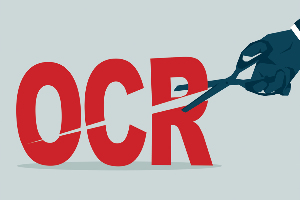
As the holiday season draws to a close and the new year begins, many Kiwis will be entering the New Year with unmanageable levels of debt.
New Zealand's total household debt last year was $393.8 billion. This translates to an average household debt of about $218,770. Additionally, household debt was 167% of disposable income, meaning that, on average, households owe 1.67 times their annual disposable income.
As of November 2024, the average credit card debt per person in New Zealand was around $1,250 (including both interest-bearing and non-interest-bearing amounts).
These staggering figures aren’t just numbers — they represent countless families struggling under the weight of debt. Small businesses are also feeling the strain as well.
As of March 2024, New Zealand businesses owed $6.7 billion in unpaid taxes. This includes various types of tax debt, such as GST, employer activities (like PAYE), and income tax for both individuals and non-individuals. The increase in tax debt reflects the economic pressures businesses are facing, with significant rises in GST and employer-related tax debts.
Campbell Smith, Country Head at Pepper Money, discusses the challenges and prospects the new year brings for those looking to regain control of their financial future.
"The good news is that with our real-life approach to home loans, Pepper Money offers flexible solutions that may help your clients take control of their finances, including options to consolidate debts or address borrowing affordability."
"The pressure of gift-giving and festive activities often leads to increased spending and a reliance on credit," Smith says.
The debt issue is partly due to high interest rates, inflation-driven increase in the cost of living, and a traditional surge in holiday expenses, creating a perfect storm for more debt accumulation. "The holiday season, typically linked to higher spending, presents both challenges and opportunities for those aiming to take charge of their financial future," Smith says.
"Debt consolidation is one strategy that can alleviate the burden of high-rate debt. By combining multiple credit card balances and other debts into a single loan with a lower interest rate, clients can potentially improve cash flow," he said.
"The good news is that with our real-life approach to home loans, Pepper Money offers flexible solutions that may help your clients take control of their finances, including options to consolidate debts or address borrowing affordability."
For borrowers looking to manage their finances better, Pepper Money provides a range of solutions to address affordability, flexibility, and choice:
- Improved cash flow: Consolidating multiple debts into one loan simplifies monthly payments, making finances easier to manage. This can be supported with interest-only loans and extended loan terms, which can reduce monthly payments and help with overall cash flow.
- Cash out: Clients can leverage the equity in their home to consolidate debts, providing a lump sum to pay off high-interest debts, including for business use.
- Business and tax debt: Clients can pay off business and tax debts to reduce interest or manage them over time with a structured payment plan to minimise financial pressure.
"Advisers have an excellent opportunity to proactively reach out to their clients to help them reassess their financial priorities and implement positive changes that can lead to long-term financial stability in the new year."
"It's important to encourage your clients to combine a debt consolidation strategy with sustainable spending habits and a solid budgeting plan," Smith concludes.





Comments
No comments yet.
Sign In to add your comment